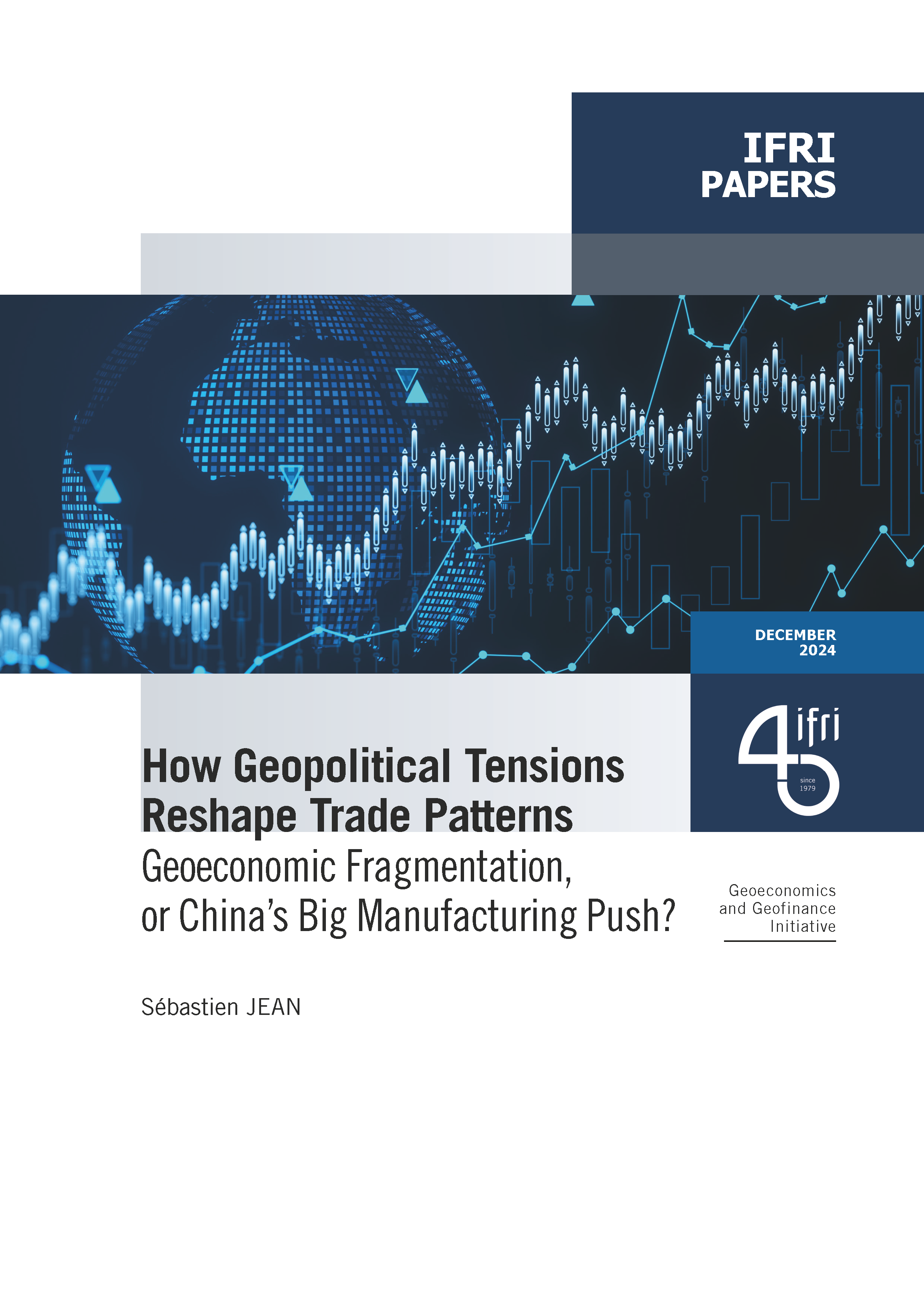How Geopolitical Tensions Reshape Trade Patterns: Geoeconomic Fragmentation, or China’s Big Manufacturing Push?

A data-based analysis shows that widespread geoeconomic fragmentation of world trade is not visible, at least so far. In contrast, the geopolitically-motivated challenges to international coordination are striking, notably in relation with China's surging surplus in manufactured goods trade.

It has become received wisdom to consider the world economy as increasingly shaped by forces of fragmentation, resulting from geopolitical tensions and strategic competition between great powers, including through trade and industrial policies. This Ifri Paper reconsiders this narrative using international trade data. It shows that, far from being a widespread trend, geoeconomic fragmentation of trade flows is only significant in “hotspots”; that is, for Russia’s foreign trade and for China-United States bilateral exchanges. Outside these hotspots, there is no tangible sign that geopolitical tensions have been shaping international trade blocs, nor is there any hint of a trend toward nearshoring – on the contrary, in fact. There is no evidence either that competing industrial policies have been reshaping trade patterns. The clearest trend is much more specific: it is the massive surge in China’s surplus in manufactured goods trade, up to 11% of the world’s total or these products since early 2023. Sudden and common to all main directions and all main sectors, this push has been policy-driven. As economic security concerns reinforce governments’ focus on manufacturing, this has become a major challenge to international coordination.

Available in:
Themes and regions
ISBN / ISSN
Share
Download the full analysis
This page contains only a summary of our work. If you would like to have access to all the information from our research on the subject, you can download the full version in PDF format.
How Geopolitical Tensions Reshape Trade Patterns: Geoeconomic Fragmentation, or China’s Big Manufacturing Push?
Related centers and programs
Discover our other research centers and programsFind out more
Discover all our analysesMulti-alignment and De-risking: The Global South Response to World Fragmentation
Turbulences and conflicts threaten the stability of the global order. What is the Global South’s response to these risks?
Power and Financial Interdependence
The link between financial self-reliance and geopolitical power has long been debated. The unbalanced Sino-American trade relationship has created asymmetric financial ties which generate potential sources of leverage for both parties and will not quickly disappear. Absent a clarifying major crisis, it will be difficult to definitively determine which party has greater leverage.
Why Chinese Fintechs Have Failed to Reshuffle International Finance
New Chinese financial technologies, including unparalleled electronic payment systems, have so far failed to threaten U.S. financial dominance.
Climate, Finance, and Geopolitics: Human Self-delusions and the Challenges for Europe
The combination of geopolitical tensions, climate disruption, and the growing role of finance in the economy is taking us into uncharted territory. Until recently, each of these subjects was handled separately, but they are now inextricably linked by two shared characteristics: the gravity of the threat, and the fact that they all lay bare the scale of human self-delusions.










